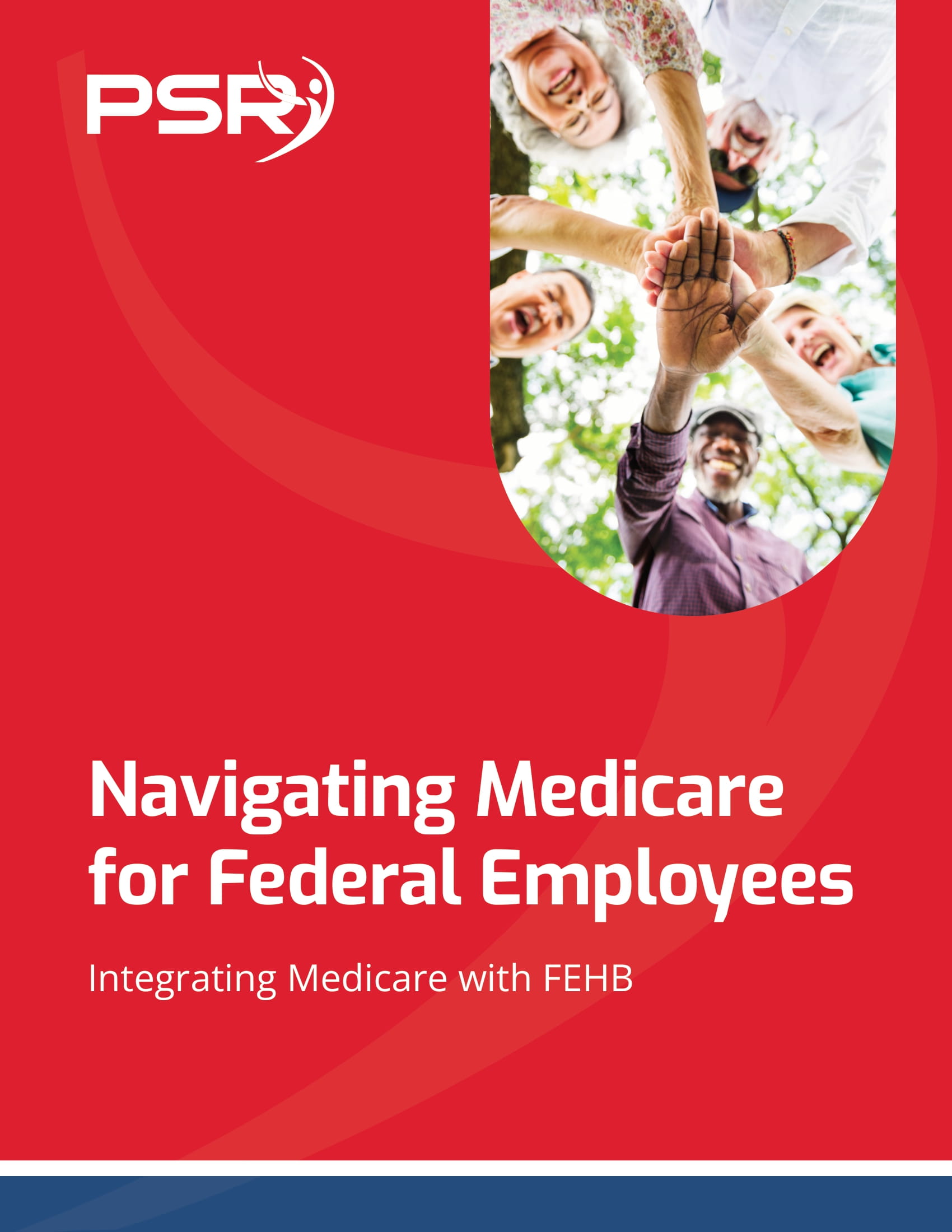Key Takeaways
-
You can keep using your Health Savings Account (HSA) in retirement, but you must stop contributing once enrolled in Medicare—timing matters.
-
Strategic withdrawals and coordination with Medicare can preserve your tax advantages and reduce your overall healthcare expenses.
Understanding Your HSA’s Role After Retirement
As a government employee, your retirement planning likely includes multiple elements—your FERS or CSRS annuity
- Also Read: Divorce and Your Federal Pension—What Happens When You Split Assets and How It Could Affect Your TSP
- Also Read: What Happens to Your Federal Benefits After Divorce? Here’s the Lowdown
- Also Read: The Best FEHB Plans for 2025: Which One Fits Your Lifestyle and Budget the Best?
In 2025, HSAs remain one of the few vehicles offering triple tax advantages:
-
Contributions are tax-deductible (or pre-tax via payroll deduction).
-
Growth is tax-free.
-
Withdrawals are tax-free when used for qualified medical expenses.
However, once Medicare comes into play, your ability to contribute stops. This shift can cause penalties or lost opportunities if you don’t plan accordingly.
How Medicare Enrollment Affects Your HSA
Once you enroll in any part of Medicare, you become ineligible to contribute to your HSA. This includes Part A (hospital insurance), which is often automatically activated at age 65 if you’re receiving Social Security benefits. The Internal Revenue Service (IRS) treats any post-enrollment contributions as excess contributions subject to tax penalties.
Timing Rule #1: Stop HSA Contributions Before Medicare Begins
If you plan to enroll in Medicare at age 65, you must stop contributing to your HSA at least 6 months before your Medicare coverage starts. That’s because Medicare Part A has a retroactive coverage period of up to 6 months (but not before age 65), and the IRS prohibits HSA contributions during any period you’re considered covered by Medicare.
Important:
-
If you delay Medicare beyond age 65 because you’re still working and covered by an HSA-eligible plan, you can continue HSA contributions.
-
But once you retire, enroll in Medicare, or start taking Social Security benefits, that automatic Medicare Part A enrollment kicks in.
Knowing When to Enroll—and When Not To
Strategically delaying Medicare can extend your HSA contribution window. However, delaying Medicare isn’t right for everyone, especially if you rely on FEHB or plan to coordinate with Medicare for cost-sharing benefits.
Timing Rule #2: Avoid HSA Contributions in the 6 Months Before You Retire
Suppose you retire at 66 and plan to enroll in Medicare immediately. You should stop contributing to your HSA no later than age 65½ to account for the 6-month retroactive coverage rule.
If you contribute past that point, you risk:
-
A 6% excise tax on excess contributions.
-
The hassle of withdrawing those excess amounts and calculating earnings on them.
Talk with your payroll or benefits office to halt HSA payroll deductions before this cutoff.
HSA Contribution Limits in 2025
For the current year, the IRS allows the following contribution limits:
-
$4,300 for individual coverage.
-
$8,550 for family coverage.
-
An additional $1,000 catch-up contribution if you are age 55 or older.
But again, you must be HSA-eligible (meaning enrolled in a High-Deductible Health Plan and not enrolled in Medicare) for each month you contribute.
If you contribute early in the year and later lose eligibility, you can only contribute a pro-rated amount based on your months of eligibility. Be careful not to exceed that threshold, or you’ll face penalties.
Using Your HSA in Retirement
Once you retire and are no longer eligible to contribute, your HSA doesn’t vanish. You can continue to use the funds tax-free for qualified medical expenses for the rest of your life. In fact, this is when your HSA becomes most valuable.
You can use HSA funds to pay for:
-
Medicare Part B, Part D, and Medicare Advantage premiums (but not Medigap premiums)
-
Dental and vision expenses
-
Long-term care services
-
Copays and deductibles
-
Prescription drugs
No More Penalty for Non-Medical Use After Age 65
Before age 65, non-medical withdrawals from your HSA incur a 20% penalty plus income tax. However, once you turn 65, you can use HSA funds for any purpose without the 20% penalty—though regular income tax will still apply to non-medical uses.
This makes the HSA a flexible backup source of retirement income, should the need arise.
Keeping Records for IRS Compliance
In retirement, you may use your HSA less frequently, but you must still keep documentation for all medical expenses paid through it. The IRS requires you to prove that distributions were used for qualified medical expenses.
Best practices:
-
Maintain digital or paper copies of bills, receipts, and statements.
-
Match each HSA withdrawal to a specific medical cost.
-
If audited, you may need to present these records even years later.
What Happens to Your HSA When You Die
If you name your spouse as the HSA beneficiary, they can treat it as their own HSA. The tax advantages continue, and they can use the funds as you would.
However, if the beneficiary is not your spouse, the account ceases to be an HSA upon your death. The full account value becomes taxable income to the beneficiary in the year of your death.
To preserve tax benefits for your spouse:
-
Keep beneficiary designations up to date.
-
Discuss with your estate planner how the HSA fits into your overall retirement and inheritance strategy.
FEHB vs HSA in Retirement: Coordination Still Matters
Many public sector retirees continue FEHB coverage into retirement. While you can’t pay FEHB premiums directly from your HSA (unless you’re still employed), you can use your HSA to cover many of the out-of-pocket costs that FEHB plans don’t fully reimburse.
Common uses:
-
Specialist copays
-
Out-of-network costs
-
Dental and vision expenses, especially if not covered under FEHB
You may also find value in pairing your FEHB coverage with Medicare Part B to reduce out-of-pocket costs—just know that you’ll no longer be able to contribute to your HSA once Medicare starts.
Planning Ahead Is Critical
As you approach age 65, your HSA strategy should evolve with your retirement goals. Work with a licensed agent to:
-
Determine your Medicare enrollment timeline
-
Identify when to stop HSA contributions
-
Understand how to use HSA funds strategically alongside Medicare and FEHB
Early planning allows you to preserve tax advantages and avoid penalties. Waiting until the last minute can lead to missed savings and costly mistakes.
Smart Withdrawals Can Stretch Your Retirement Budget
Think of your HSA as a tax-free reimbursement vault. There’s no requirement to withdraw funds immediately after a qualified medical expense—you can reimburse yourself later, as long as the expense occurred after the HSA was established and you have documentation.
This opens up a few strategies:
-
Let your HSA grow tax-free while you pay expenses out of pocket.
-
Reimburse yourself later during retirement years when you need extra cash.
-
Coordinate withdrawals to avoid increasing your taxable income in high-income years.
Carefully timed withdrawals can help you smooth out retirement income, reduce tax exposure, and maintain liquidity when needed.
What Retirees Should Focus On Now
In 2025, with rising healthcare costs and evolving Medicare rules, your HSA may play a larger role than you anticipated. Whether you’re on the cusp of Medicare enrollment or have just stepped into retirement, here’s where to direct your attention:
-
Know your HSA eligibility by month. Track your contributions carefully.
-
Coordinate with Medicare timing to avoid excess contribution penalties.
-
Document medical expenses now so you can reimburse later if needed.
-
Update your beneficiary to protect your spouse from unnecessary taxes.
-
Use your HSA strategically—for dental, vision, Medicare premiums, and long-term care.
This isn’t just about avoiding mistakes—it’s about turning your HSA into a long-term asset for your retirement lifestyle.
Don’t Miss Your Window to Optimize HSA Use
If you’ve contributed to an HSA during your public service career, you’ve already laid the groundwork for a powerful tax-advantaged resource in retirement. But unlocking its full potential depends entirely on how and when you act.
Before Medicare enrollment or retirement, speak with a licensed agent listed on this website to walk through your HSA contribution status, Medicare timeline, and long-term withdrawal strategy. A few timely steps today can protect you from penalties and position you for greater financial freedom in retirement.











